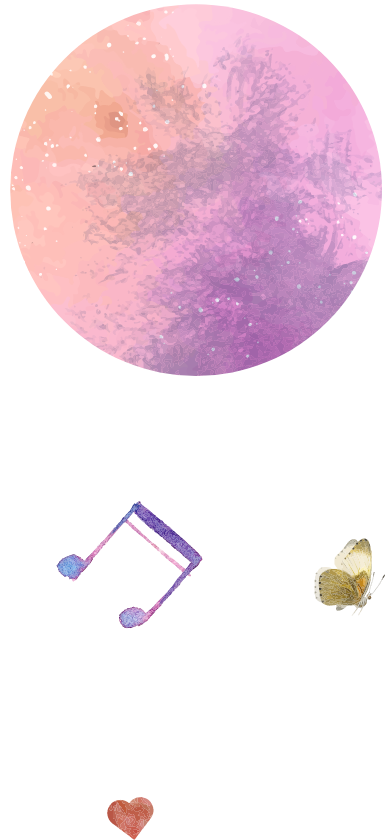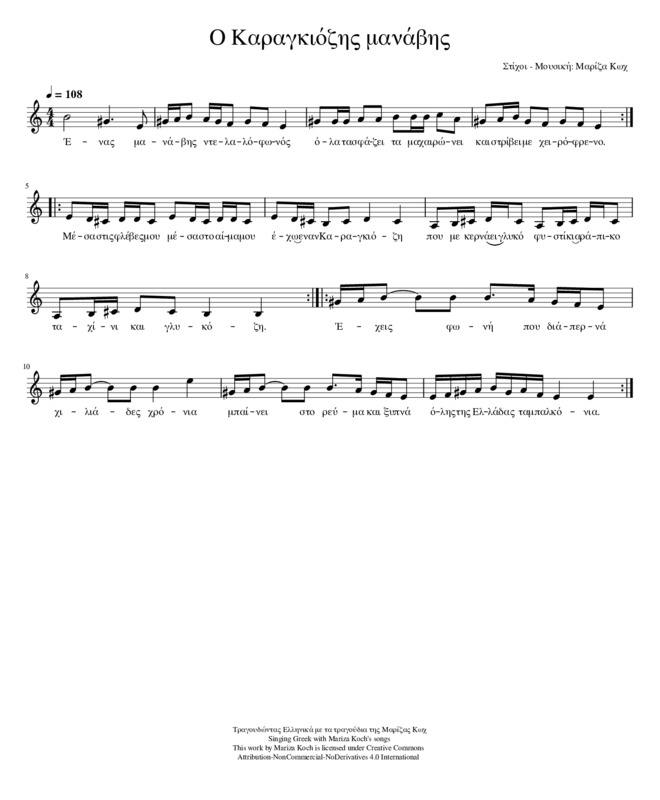
O Karankiozēs manavēs

O Karankiozēs manavēs
Pronunciation
Familiarization and practice the articulation of speech (speech and song) through intense rhythm.
Speech Comprehension and Production
Explain semantically the expressions of the song “μέσα στις φλέβες μου, μέσα στο αίμα μου” (mesa stis phleves mou, mesa sto aima mou), “όλα τα σφάζει, όλα τα μαχαιρώνει” (ola ta sphazei, ola ta maxairōnei), “βγήκε στην παγανιά” (vgēke stēn pagania), “εδώ παπάς, εκεί παπάς” (edō papas, ekei papas).
Create short phrases of oral speech that help the greengrocer to sell his products (directional speech in order to promote the products), e.g. “ντομάτες ωραίες έχω” (ntomates ōraies exō), “φρέσκα λαχανικά σημερινά από το χωράφι μας” (phreska lachanika sēmerina apo to chōraphi mas), “είναι γλύκα είναι μέλι τα καρπούζια του μανάβη” (einai glyka einai meli ta karpouzia tou manavē), etc. The pupils evaluate the content of the phrases and their articulation (evaluate elements such as smart phrases that are easy to remember, phrases that can persuade the customers to buy specific products, tone color of voice, etc.). “Μέσα στις φλέβες μου έχω έναν καραγκιόζη” (mesa stis phleves mou exō enan karankiozē), “έχεις φωνή που διαπερνά χιλιάδες χρόνια” (exeis phōnē pou diaperna chiliades chronia): explanation of metaphorical phrases and their elaboration to highlight the diachronic cultural value of Karankiozēs.
Loanwords from other languages e.g. ντελάλης (delalēs, town crier), φιστίκι (phistiki, pistachio), γκάζι (gkazi, accelerator).
Group of words related to driving: handbreak, accelerator, third (speed), and mention other words with the same subject.
Create and dramatize dialogues using as main characters the peddler and his customers.
Create short phrases of oral speech that help the greengrocer to sell his products (directional speech in order to promote the products), e.g. “ντομάτες ωραίες έχω” (ntomates ōraies exō), “φρέσκα λαχανικά σημερινά από το χωράφι μας” (phreska lachanika sēmerina apo to chōraphi mas), “είναι γλύκα είναι μέλι τα καρπούζια του μανάβη” (einai glyka einai meli ta karpouzia tou manavē), etc. The pupils evaluate the content of the phrases and their articulation (evaluate elements such as smart phrases that are easy to remember, phrases that can persuade the customers to buy specific products, tone color of voice, etc.). “Μέσα στις φλέβες μου έχω έναν καραγκιόζη” (mesa stis phleves mou exō enan karankiozē), “έχεις φωνή που διαπερνά χιλιάδες χρόνια” (exeis phōnē pou diaperna chiliades chronia): explanation of metaphorical phrases and their elaboration to highlight the diachronic cultural value of Karankiozēs.
Loanwords from other languages e.g. ντελάλης (delalēs, town crier), φιστίκι (phistiki, pistachio), γκάζι (gkazi, accelerator).
Group of words related to driving: handbreak, accelerator, third (speed), and mention other words with the same subject.
Create and dramatize dialogues using as main characters the peddler and his customers.
Music Activities
After learning the song, perform the rhythm or rhythmic phrases of the song by clapping.
Walk to the rhythm of the meter and clap the rhythm of the melody. Alternatively, the pupils are divided into two groups: they find two rhythmic patterns (body percussion) and synchronize in accompanying the song while using them.
Learn the melody on a melodic instrument (recorder, glockenspiel). Instrumentation of the melody with Orff instrumentation techniques on harmonic instruments (melodic tube, xylophone, boomwhackers).
Chasaposerviko: familiarize with the music and dance, listen and view the audiovisual material, learn to dance.
Walk to the rhythm of the meter and clap the rhythm of the melody. Alternatively, the pupils are divided into two groups: they find two rhythmic patterns (body percussion) and synchronize in accompanying the song while using them.
Learn the melody on a melodic instrument (recorder, glockenspiel). Instrumentation of the melody with Orff instrumentation techniques on harmonic instruments (melodic tube, xylophone, boomwhackers).
Chasaposerviko: familiarize with the music and dance, listen and view the audiovisual material, learn to dance.
Cross-thematic Connections - Greek Culture
Interdisciplinary concept: tradition.
Shadow Theater in Greece: meet the heroes of the Greek shadow theater, view audiovisual material of shadow theater performances. Connect the characters with different geographical areas of Greece [Καραγκιόζης (Karankiozēs), μπάρμπα-Γιώργος (barmpa-Giōrgos), Μορφονιός (Morphonios), Σιορ-Διονύσιος (Sior-Dionysios), Βεληγκέκας (Velēgkekas), Σταύρακας (Staurakas), Αγλαΐα (Aglaia), κολλητήρια (kollētēria)]. The students try to mimic using their voices a shadow theater hero of their choice. Construct the shadow theater figures. Discussion on what the peddler can have in common with Karankiozēs (both characters give the feeling of the planet, the man who lives in the street, who cares more for today than for tomorrow).
Foods mentioned in the song (sweet, peanut, tahini, glucose) and what they have in common: they are all traditional products from the East.
Roma and gypsies in Greece and around the world: discuss and refer to Roma musical traditions. View the audiovisual material with Roma musical traditions and customs.
Shadow Theater in Greece: meet the heroes of the Greek shadow theater, view audiovisual material of shadow theater performances. Connect the characters with different geographical areas of Greece [Καραγκιόζης (Karankiozēs), μπάρμπα-Γιώργος (barmpa-Giōrgos), Μορφονιός (Morphonios), Σιορ-Διονύσιος (Sior-Dionysios), Βεληγκέκας (Velēgkekas), Σταύρακας (Staurakas), Αγλαΐα (Aglaia), κολλητήρια (kollētēria)]. The students try to mimic using their voices a shadow theater hero of their choice. Construct the shadow theater figures. Discussion on what the peddler can have in common with Karankiozēs (both characters give the feeling of the planet, the man who lives in the street, who cares more for today than for tomorrow).
Foods mentioned in the song (sweet, peanut, tahini, glucose) and what they have in common: they are all traditional products from the East.
Roma and gypsies in Greece and around the world: discuss and refer to Roma musical traditions. View the audiovisual material with Roma musical traditions and customs.
Age level
11-15 years old
Language level
Advanced
Professions
Nutrition
Shadow play
Ta tragoudia pane theatro




